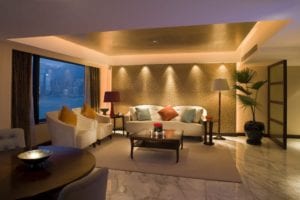By Neil Cameron
In the hospitality industry where room occupancy rates directly correlate with profitability, it’s hard to put a cap on energy use – the guest’s comfort is of primary concern. However, as tourism in South Africa flags, there is mounting pressure on this sector to conserve energy and cut costs. To balance cost and comfort imperatives, smart cost-effective technology that can easily be fitted into some existing air conditioning units already popular in the sector – are proving their worth. The no-volt relay switch, installed on the air conditioning unit’s control panel, allows hotel managers to switch air conditioning units off and room occupants, if they feel the need, to switch them back on. The net result is significant energy savings and happy guests. While these switches have been available for some time as additional feature options and as retrofit options, they have never been more essential. Supporting tourism through energy efficiency Tourism in South Africa is flagging. The hospitality sector had a good 2014 with room rates of 54.4% set to rise to 62% in 2019, according to a recent PwC industry report. However, South Africa’s new visa requirements, the xenophobic attacks and the Ebola outbreak in Africa have all had a negative effect on tourism. The tourism business index released recently by the Tourism Business Council of South Africa reflects an index performance drop from 99.9 to 83.6 from the first to the second quarter, with the third quarter looking dismal at 80.6%. New approaches to cost saving have become essential.Energy costs, which include Heating Ventilation and Air Conditioning, can account for up to 40% of facility costs. As energy costs continue to rise in South Africa, it’s becoming a priority target for management. With ongoing load shedding, more owners and managers are also conscious of the need to do their part to lower stress on the grid. The implementation of a simple energy efficient solution like the no-volt relay switch can help control rising energy costs, reduce environmental footprints, and increase the value and competitiveness of buildings – and guest offers.
Scheduling air conditioning The reality is that hotel rooms are primarily occupied at night by holiday makers and business people. There is little need to keep air conditioning running through the day. Some hoteliers might schedule air conditioning to shed in rooms for short periods (for example, at 9am, 12pm or 3pm) or they may use their no-volt relay switches to switch off all air conditioning units at these times, leaving it to guests to decide whether they wish to switch the units back on or not. Many hotels in South Africa make use of Console Units – they are small, efficient, stand-alone units that can be set up in 45 minutes, are easy to maintain, and can simply be rolled out and replaced if repairs are needed. This ensures room occupancy is maximised. These units are also popular in smaller office blocks. The no-volt relay option can be specified at purchase, or the Console units can be retrofitted with the no-volt relay switch – it takes less than an hour to do.






